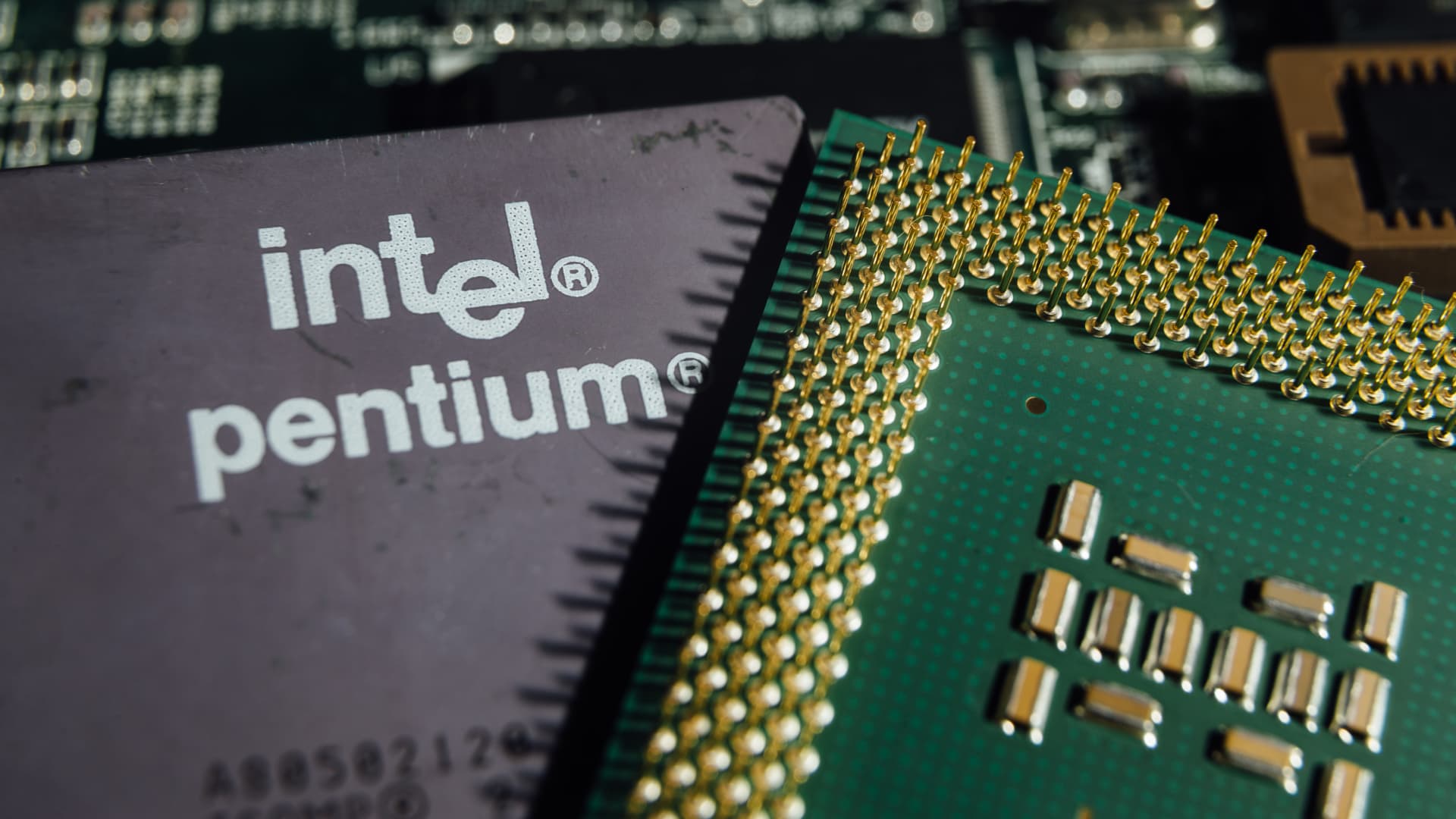
Intel Pentium CPU photographed after Intel revealed information about major flow in the chipsets.
JP Black | LightRocket | Getty Images
Several U.S. semiconductor firms are deliberating whether to oppose a package of chip industry subsidies if the final language of the legislation awaiting a vote in the Senate disproportionately benefits manufacturers like Intel, sources familiar with the matter told Reuters.
Senate Majority Leader Chuck Schumer has told lawmakers that a vote could come as early as Tuesday on a slimmed-down set of bills to bolster the U.S. computer chip industry, after Democratic lawmakers cleaved them from a larger, more contentious bill.
The bills are aimed at making the U.S. more competitive against a rising China, whose chip industry has grown rapidly over the last five years to account for almost 10% of global sales.
The measures include $52 billion in subsidies and an investment tax credit to boost U.S. manufacturing. The bills have bipartisan support, though Republicans may vote against the chip measures unless Democrats give up plans to try to push through unrelated spending bills that Republicans oppose.
But a rift is emerging within the chip industry itself, with some players concerned the final language of the legislation could provide disproportionate support to manufacturers like Intel while doing little to support other chip makers like Advanced Micro Devices, Qualcomm and Nvidia.
Intel, along with firms like Texas Instruments and Micron Technology, designs and manufacturers its own chips. Such firms would benefit from the $52 billion in CHIPS Act subsidies to build factories and also from an investment tax credit to purchase tools for use inside their factories from another measure called the FABS Act.
Intel earlier this year said it would spend $20 billion on a factory in Ohio after breaking ground on two new plants in Arizona last year.
AMD, Qualcomm and Nvidia design their own chips but tap partners to fabricate them and would see no direct benefit from subsidies to build plants or tax support for tools.
They support a separate version of the FABS Act introduced in the U.S. House of Representatives that contains both the manufacturing tax credit and a tax credit for chip design activities that would directly benefit them.
That version of the FABS Act – which is more pleasing to a broader swather of chip industry players – is also the one the Semiconductor Industry Association, which represents U.S. chip firms, has called on lawmakers to pass.
“We’re encouraged that the legislation is progressing, and we continue to support enactment of $52 billion in CHIPS Act investments and a FABS Act investment tax credit for both manufacturing and design,” the association said in a statement on Friday.
The current Senate legislation contains no design tax credit. That has prompted some U.S. chip companies, which asked not to be named for fear of industry and government blowback, to debate opposing the Senate bill if the final language that comes to the floor has no tax credit for design activities, two people familiar with matter said.
“You have Intel that might get $20 billion with CHIPS Act plus $5 billion or $10 billion under the FABS Act. So $30 billion goes to your direct competitor, and you don’t get a penny? That’s going to cause problems in the market,” said one person at a company debating opposition to the bill, speaking on condition of anonymity because the person was not authorized to talk to the press.
“It’s going to benefit just a few companies,” said a person at a second company deliberating its support for a bill with no design credits who was not authorized to speak to the press.
Nvidia declined to comment. Spokespeople for AMD, Qualcomm and Intel did not immediately respond to requests for comment.







